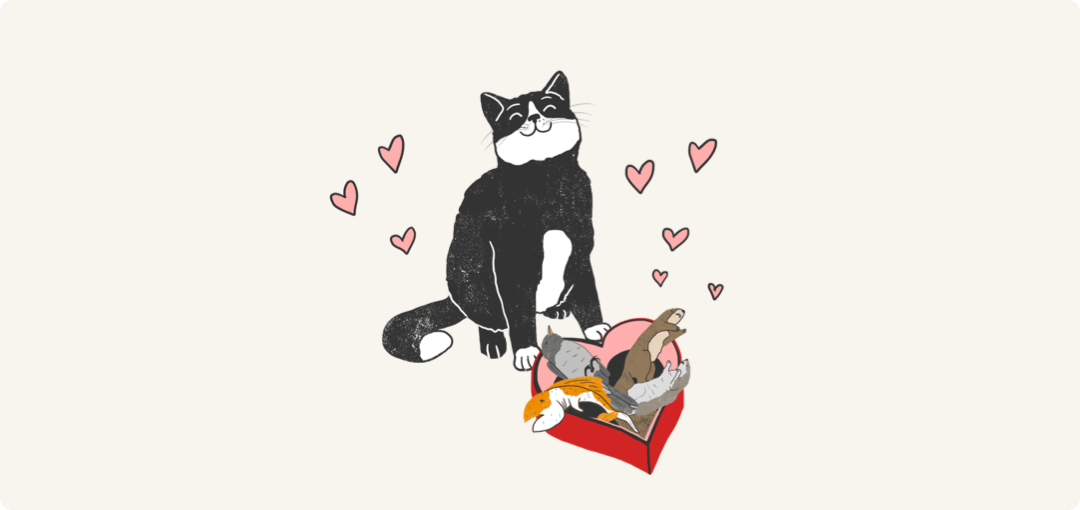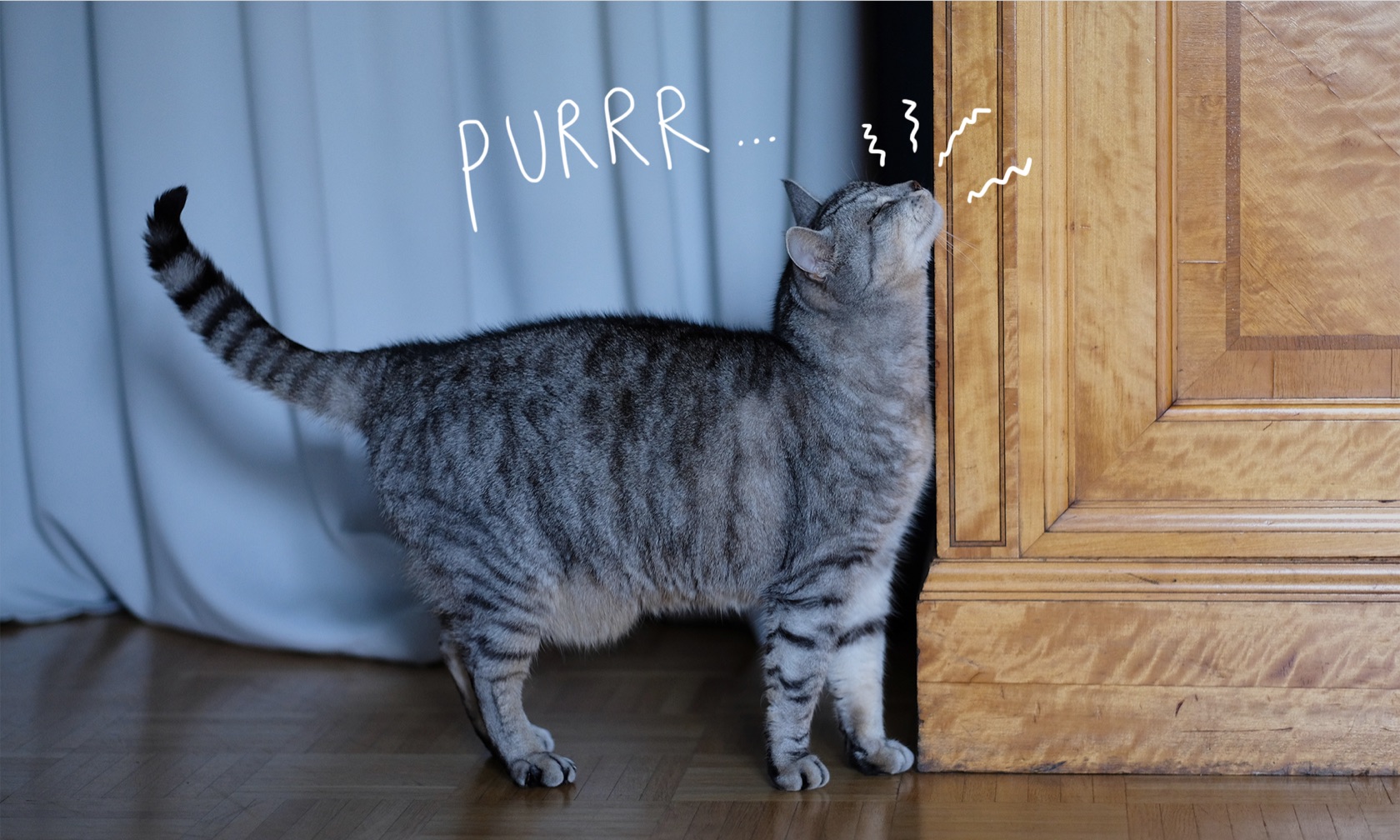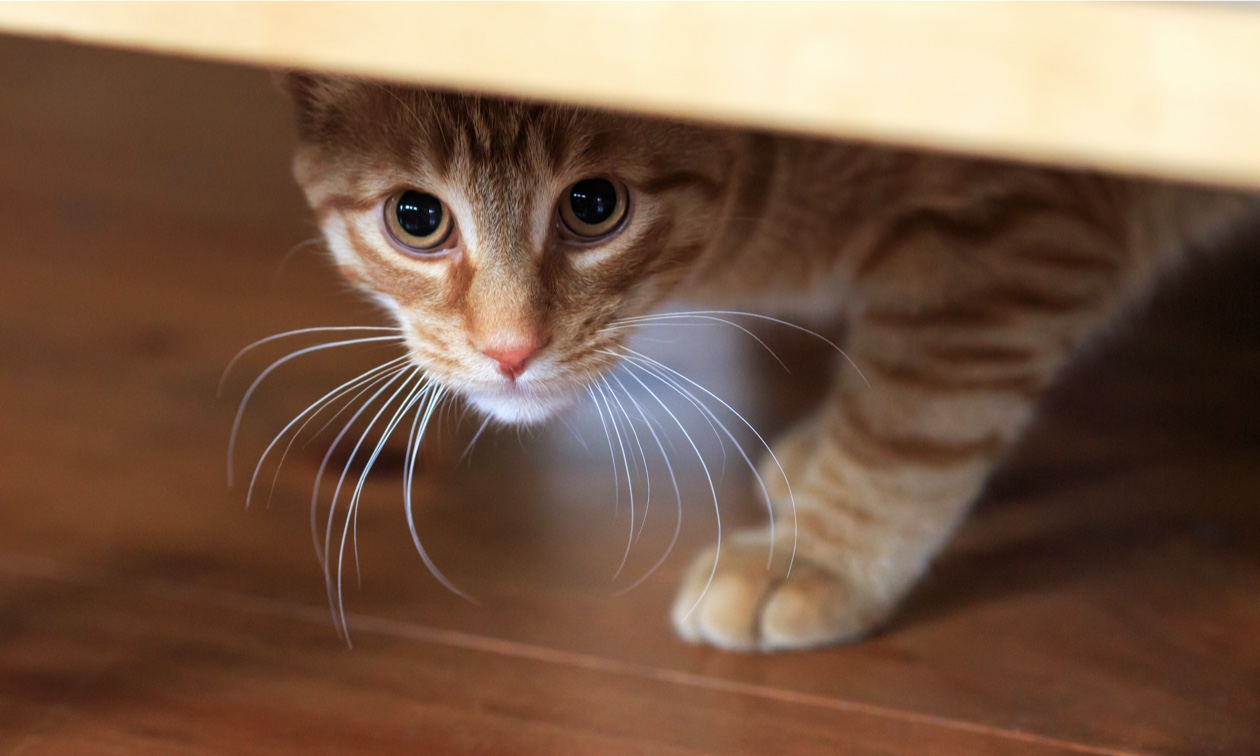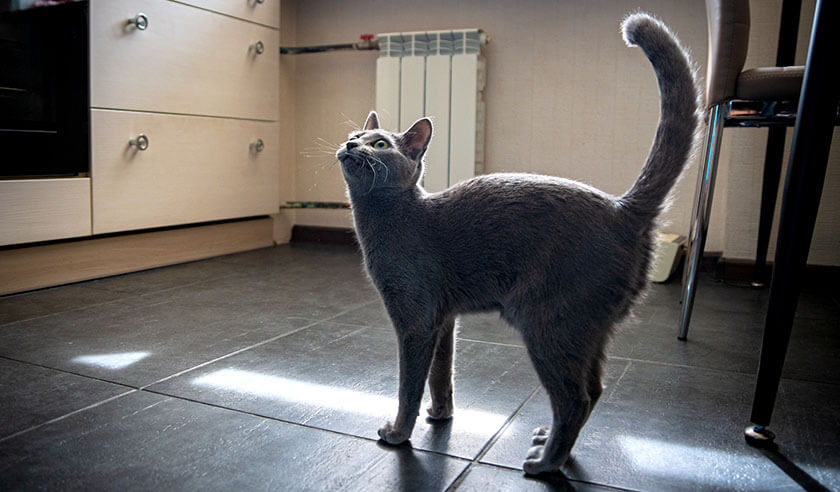Cats are fascinating and mysterious creatures. Their weird behaviors can entertain us for hours, but do you ever wonder why cats do the things they do? Weird cat behaviors might seem unusual to us, but typically have a real meaning or purpose behind them.
Here Are 8 Weird Cat Behaviors Explained:
Making Biscuits
Does your cat knead your legs when they’re about to sit on your lap or on a soft blanket nearby? This kneading behavior (also known as “happy paws”) stems from the movements they made when they were nursing kittens (stimulating milk production in the mammary glands). This motion may be self-soothing for your cat. Making biscuits also “marks” you by releasing pheromones from their paw’s sweat glands, and likely means that your cat feels very comfortable in your presence.Burying Their Poop (or Not)
It’s a natural instinct for cats to bury their waste, and there are a couple of different reasons. Wild cats bury their poop to remain undetected in a territory that might belong to another cat and to remain undetected by potential predators. Conversely, they may leave their poop uncovered to mark their territory.If your cat suddenly stops burying their poop, it could be a sign of a medical problem, that they don’t like their litter, their litter box isn’t big enough, or some other litter box dissatisfaction issue. Keep an eye on their behaviors and any other symptoms to rule out a medical condition and take a trip to the veterinarian if the behavior continues.
Bumping You With Their Head
Cats rub the side of their face against you or bump their head into you to say hello (also known as “bunting”). Think of this as a fist bump from your kitty. Rubbing their muzzle and whiskers also deposits the feline facial pheromone onto you or whatever else they’re rubbing (like a couch or tree). This helps to mark the object as safe and familiar and may signify ownership by the cat (so yes, your cat may think they own you).
- Hanging Out in Boxes (and Other Small Spaces)
Does your cat love boxes? And cubbies, sinks, and other tight spaces? Besides simply being curious about them, cats get comfort and stress relief from resting in cardboard boxes – they’re warm caves that keep them safe from predators. It’s important to respect your cat’s hang-out space — when they are in it, don’t reach in and disrupt their safe place. It helps cats to have a human-free zone where they can relax. - Keeping Watch From High Places
Vertical spaces aren't just about watching and hunting prey, they are also for cats to get away from potential predators or noise and chaos that come along with busy families (like kids, dogs, other cats, and even adults). Vertical spaces are a big part of environmental enrichment for cats, so you can never have too many vertical spaces for them to hang. - Urine Spraying
Cats spray to communicate with people and other cats, likely to say, “I was here!” If your cat is the only pet in the household, they could also be spraying because they feel threatened or stressed from neighborhood cats or other elements in their environment, or for a range of medical reasons. Spraying may also be done as a self-soothing measure when cats feel insecure — it surrounds them with their own scent and helps reinforce their place in the environment. - Scratching
Cats scratch to maintain their claws (by removing the old outer nail sheath), to leave their scent (as they have scent/pheromone glands in their paws), and to stretch. Giving them a proper place to scratch, like a scratching post, will help them satisfy their needs without ruining your furniture. Even with a dedicated scratching post, nail trimming is still important, especially dewclaws (the thumbs), which often don’t stay maintained like the rest of their nails. - Bringing Their Owners "Gifts" (I.e., Dead Things)
Who doesn’t love a nice dead rodent on the doorstep? Cats will bring gifts to you as a token of friendship, to thank you for feeding them, or to make sure you’re getting enough food (they’re trying to teach you how to hunt). Sweet, right?

Each cat is different and displays their own set of instinctual behaviors. If their behaviors change suddenly, it could be a sign of a medical problem. It’s important to learn the signs that indicate your cat might not be feeling well so that you can seek medical attention as soon as possible.
ZPC-00451R2



.jpg)

